APTN News
A Mi’kmaq chief in Newfoundland says her community will begin taking steps to separate from the Qalipu First Nation band.
No’Kmaq Village Chief Liz LaSaga of Flat Bay took to social media last weekend to condemn the Qalipu enrolment process, calling it “unprofessional” and “illegitimate.”
She said watching respected members of her Mi’kmaq community denied membership in Qalipu and denied recognition from Canada, while others among the band’s 103,000 applicants have allegedly falsified documents or exaggerated their Indigeneity to gain status, was the final straw for her.
“In knowing that one person alone falsified [documents] and that anyone who should have been approved and was not, that alone questions the legitimacy of the whole membership,” she wrote. “It does not go both ways.”
LaSaga and former Flat Bay Chief Calvin White told APTN News the results of the enrolment controversy, which has left more than 80,000 self-identifying Mi’kmaq people in and from Newfoundland without status, means the people of their community cannot sufficiently access benefits.
Flat Bay also cannot develop a sustainable economy, they say.
As a non-profit, Flat Bay Band Inc. runs the community out of an independent band office without core funding from the federal or provincial governments and largely on grants, which the chief spends much of her time applying for.
“We’re the only band left in Canada, to our knowledge, that meets those four criteria where we’re 99 per cent Native, we self-govern, we don’t have a legislative body, and we don’t have an agreement with the federal government,” LaSaga explains.
On Tuesday, Qalipu Chief Brendan Mitchell told APTN of Flat Bay’s roughly 336 residents, about 132 have status and membership in Qalipu, and that Qalipu has made efforts to help Flat Bay with funding certain activities and initiatives.
LaSaga and White peg the community’s population at closer to 400 and say given 99 per cent of its residents identify as Mi’kmaq the low number of them given status is unacceptable and unsustainable.
“Under the umbrella of the Qalipu, through no fault of their own, we find it very difficult to pursue the goals and objectives of our community,” says White, a co-founder of the Aboriginal movement in Newfoundland and Labrador to gain recognition and status for the province’s First Nations and Inuit.
White was also recently announced as a member of the Order of Canada because of his efforts as an advocate and leader for Indigenous rights.
LaSaga says though they sometimes disagree there is no animosity on Flat Bay council’s part toward the Qalipu chief and council, and that she and White are speaking out in an effort to protect the integrity and future of their community.
“An agreement for Flat Bay just simply needs to be something where we know we have a budget every year that we can operate our band on, and we can handle it from there,” says LaSaga.
But Mitchell isn’t taking the comments about the Qalipu enrolment process and resulting membership lightly.
He says it’s “absolutely shameful that our own people that should be helping support our situation in our province are gone off to try to help destroy what it took five decades and a lot of hard work and interest by a lot of people to try to bring — and that is recognition to Mi’kmaq people in Newfoundland.”
He also says he will facilitate a split from Qalipu for the residents of Flat Bay if that’s what they want.
White has maintained throughout the decades long fight by Newfoundland Mi’kmaq for recognition that the Mi’kmaq principle of equality must be front and centre, and no deals should be made with Canada or the province that recognizes some but leaves others out.
The Qalipu enrolment process and results have left families and communities divided, in many instances recognizing some siblings as Indigenous and others not, based on what many call a flawed point system derived largely from the Supreme Court of Canada’s 2003 Powley decision, which rendered a legal definition of Métis for the purpose of asserting Aboriginal rights under Canada’s constitution.
In an effort to recognize Mi’kmaq in Newfoundland whose existence had previously been denied by the province and Canada, an agreement was struck in 2008 between the Federation of Newfoundland Indians and the federal government that outlined the criteria for membership in the new band.
After the landless band was formed in 2011, more than 100,000 applications were received for band membership.
The federal government and Federation of Newfoundland Indians then negotiated a Supplemental Agreement whereby all applicants’ documentation would be reviewed under more stringent rules.
More than 80,000 applicants have been rejected, and in recent weeks many have received rejections of their attempts to appeal the enrolment committee’s decisions.
The Mi’kmaq Grand Council in Nova Scotia has expressed concern over the number of applicants seeking membership under Qalipu and even appealed to the United Nations for help, arguing it’s an infringement of Mi’kmaq sovereignty for Canada to determine who is Mi’kmaq and who is not.
APTN News reached out to the Council’s Grand Keptin Andrew Denny for comment on this story but Denny declined.
LaSaga and White say Flat Bay is unique in Newfoundland in that its people have largely maintained a traditional way of life and identity as Aboriginal people, and that if Qalipu and Canada won’t recognize its people as Mi’kmaq, it will create its own criteria for membership if successful in splitting from Qalipu.
LaSaga says she would push for membership in a Flat Bay band under the Indian Act to be based on a fourth generation rule, and on the ability to identify who is a member of their own community.
She says the lives of the people of her community have been impacted enough by colonization, and that they are all deserving of recognition under the Indian Act and to be given the ability for a better future in Flat Bay.
“When you have a status card, you need to be able to know before you use that card, what it is about your background, your ancestors, your parents, what it is about the movement why it is the government owes you that card,” she said. “And if you don’t know, I would suggest don’t use it until you learn.”
A split from Qalipu would also allow people like Wade White, who hails from Flat Bay but has lived in Halifax for more than three decades, to gain recognition from Canada.
Under the current Qalipu enrolment regime, his move from Western Newfoundland to find work elsewhere means he’s not regarded as an Indigenous person — though he has always identified as one.
“Anybody that’s connected to the Flat Bay band, like myself, who’s still in the Flat Bay band, would get recognition for being Native and being away.”
He shares the growing criticism of Qalipu, saying the band has “lost all their credibility.
“They’re throwing people out who were members of the Federation of Newfoundland Indians; they’ve been throwing those people out. Other people are getting in. It’s not done by generation, it’s not done by ancestry. It’s done by points, and nobody can figure it out. It’s like a lottery,” he said.
Many have urged Mitchell to walk away from the agreement with Canada until all Newfoundland Mi’kmaq are recognized.
But Mitchell insists doing so would negate a half century of progress for Indigenous rights in the province.
He says he has lobbied Liberal MP for Long Range Mountains, Gudie Hutchings, Crown-Indigenous Affairs Minister Carolyn Bennett, Labrador MP Yvonne Jones and other senior bureaucrats on the Qalipu file, asking for changes to the agreement that would give more people status — but to no avail.
He said the only person he hasn’t been able to get an interview with is Prime Minister Justin Trudeau, and that he’s not hopeful that meeting will soon be granted.
LaSaga and White say no final decisions will be made on splitting from Qalipu without the consent of the members of their community.




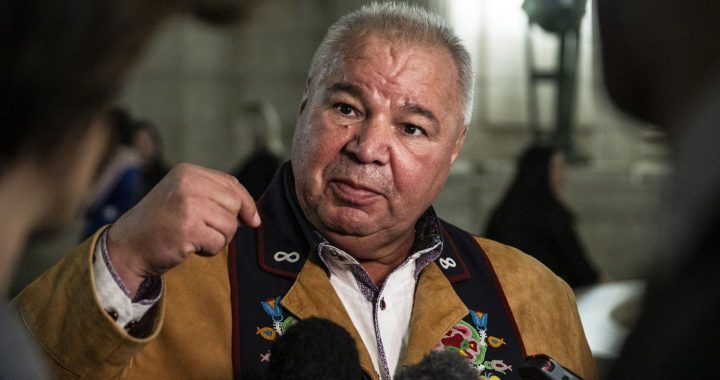
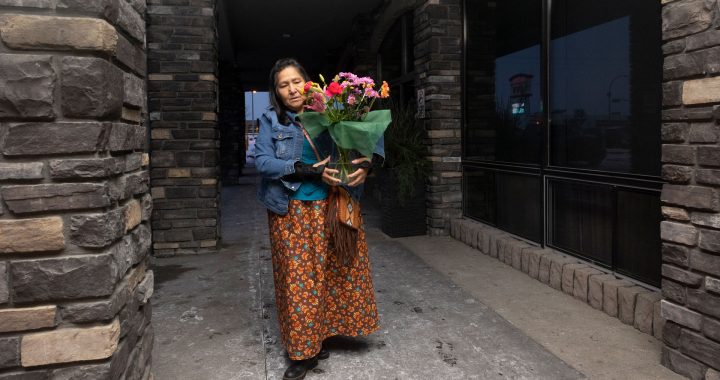
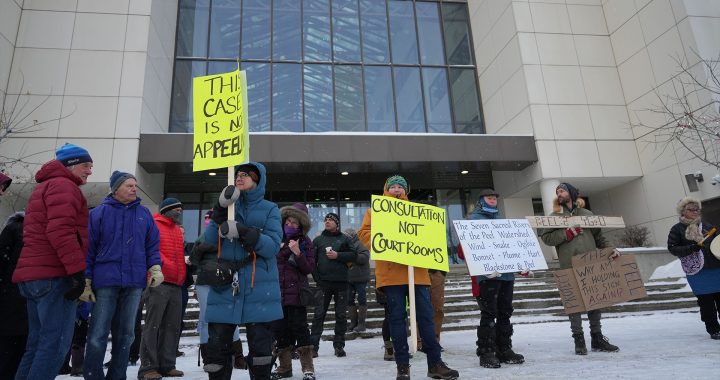
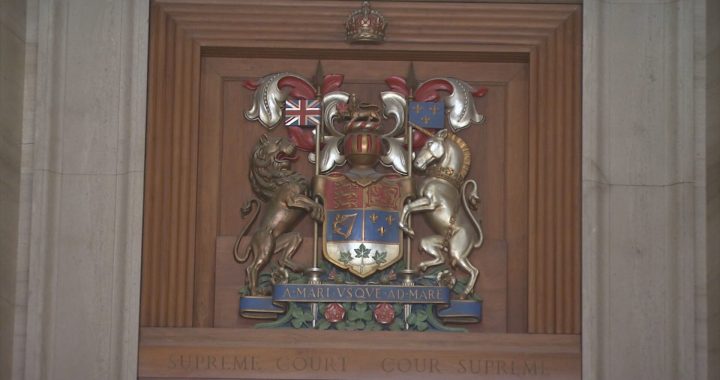
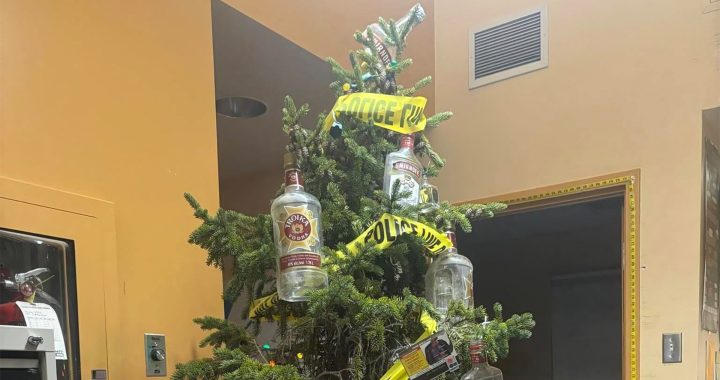
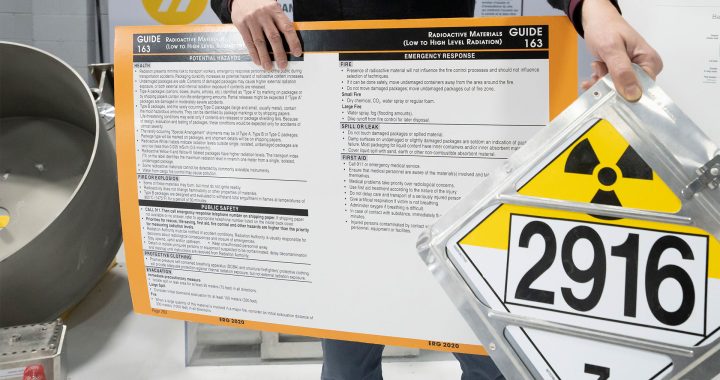

It took over 15 years of hard work to be recognized as Mi’Kmaq and was so proud when the day came when we got our statis card and now it is taken away because our parents came to Ontario to give their children a better life as there was no work for Newfoundland people my ancestors would roll over in their grave if they heard what was happening to their children this is so disrespectful to my people Mi’Kmaq
It took over 15 years of hard work to be recognized as Mi’Kmaq and was so proud when the day came when we got our statis card and now it is taken away because our parents came to Ontario to give their children a better life as there was no work for Newfoundland people my ancestors would roll over in their grave if they heard what was happening to their children this is so disrespectful to my people Mi’Kmaq
Thank You Chief Lasaga for taking a stand against injustice on the Mik’Maq of Newfoundland.
Thank You Chief Lasaga for taking a stand against injustice on the Mik’Maq of Newfoundland.
Brendan Mitchell can’t get an interview with the Prime Minister but an alleged criminal Joshua Boyle can. Something wrong here.
If you didnt turn your back on us none of this would be happening Mr Mitchell
Brendan Mitchell can’t get an interview with the Prime Minister but an alleged criminal Joshua Boyle can. Something wrong here.
If you didnt turn your back on us none of this would be happening Mr Mitchell